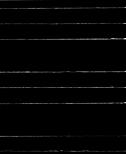
 |
 |
by Graciela Monteagudo

At the end of the tunnel, there were the burning coals of a brasero. The iron bucket was the only source of heat for the hut with a cement floor and cardboard walls. Uberlinda saw the world for the first time in a slum outside of Cipolletti, Río Negro, Argentina.
First her mom and her dad. Then her lover and her husband. Later, the nurses and the police. The hurt would come in cold red waves. It would stain the cardboard walls.
Fourteen and no shoes. Lice painting the paths of shame on her skull. Below zero sometimes. Uberlinda found the dumpster. Spectral landscape of half burnt garbage. A search for cardboard to be sold for a few coins.
The psychiatrist reported that her mother died when she was four. Her father’s multiple partners abused her. At fourteen she escaped with a man.
Ensio looking like a god in his factory overalls. Oil digger in the town of Cultral-Co, nearby.
Turned around. Soft from inside. Melting brown skin. It was quick. Just a little pain. Not much of nothing, but it did open the door out of her father’s for her.
Later, Uberlinda, following the rules of the hospital, had her legs tied to the stirrups. Fire burning through her. Again, the cold red waves that engulfed her from within. The closer she gets the more it hurts. It’s all over. Slapped by the doctor, the baby wails. Her breast is warm and the baby relaxes and sleeps.
An accident. Just an accident. Uberlinda watched her children burn. Flames and guilt and anger. Then and there, she stopped noticing her lice. Her lice followed her everywhere, since the beginning of time. Once, her lice followed her into the asylum. They did not abandon her, not even when Uber hit her head against the wall, confusing, in her delirium, the padded walls of the confinement room with the cardboard walls of her burning home.
Ensio, from god in overalls to drunk in rags. The gringos took the oil and dumped the Ensios. The piquetes spread throughout the country. Fire on the national highways. Stones, rain, highway asphalt. Guards in riot gear. Masked men, women and children in rags. Stones and sticks against lead bullets. The judge, a woman, stood on a tank. A small body on a war machine. In a direct democracy assembly with the people, she heard their cry and commanded the Guard away.
Juan, her 15 year old, threw stones with amazing aim. They banged against the acrylic shield that protected the soldier’s faces. All of them masked. The National Guard charged. From behind the burning tires, Uberlinda took aim. The molotov described an almost perfect arch on the dark sky. For a second, it lit up a war scene and then it was all fire and pain.
The prosecutor reported that Uberlinda was arrested in a piquete in the town of Cipolletti, charged with obstruction of a public highway, attack to National Guard officers, damage to property and disorderly behavior.
The police station, dirty and small. Uberlinda and many women. Sweat, anger and, for the first time compañeras to break bread with. Uberlinda learns a new word: solidarity. It’s the feeling that holds her up when the sergeant -a woman- bangs her head against the wall. Outside, the people of Cipoletti riot until a judge releases the piqueteras and piqueteros.
Uberlinda, with two of her surviving children in high school, picks up cardboard and continues to organize with the autonomous piqueteros of Cipolletti. For the past few years, some families have been receiving $50.00 a month plus some food from the government. Uberlinda bakes, plants a garden, gossips and sometimes fights with her compañeras. Despite President Néstor Kirchner’s bravado with the IMF, the debt continues to be paid with Uberlinda’s blood, cardboard, lice and fire.